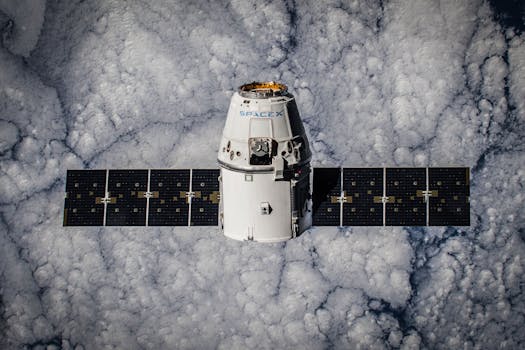
The Future of Satellites: Revolutionizing Global Connectivity and Exploration
Future of satellites is an exciting and rapidly evolving field, with tremendous potential to transform the way we live, work, and communicate. The future of satellites holds immense promise, with advancements in technology and innovations in launch systems, materials, and applications. Satellites have been a crucial part of modern life, providing essential services such as navigation, communication, weather forecasting, and Earth observation. As we look to the future, it is clear that satellites will play an even more vital role in shaping our world.
Advances in Satellite Technology
One of the most significant developments in the future of satellites is the advancement of satellite technology. Next-generation satellites will be more powerful, efficient, and versatile, with improved propulsion systems, advanced materials, and enhanced sensors. These advancements will enable satellites to perform a wider range of tasks, from providing high-speed internet connectivity to monitoring environmental changes and tracking natural disasters.
The use of artificial intelligence and machine learning will also become more prevalent in satellite technology, allowing for real-time data analysis and decision-making. This will enable satellites to respond quickly to changing conditions, such as shifting weather patterns or emerging natural disasters. Furthermore, the integration of satellite technology with other fields, such as the Internet of Things (IoT) and cloud computing, will create new opportunities for innovation and applications.
Expanding Satellite Applications
The future of satellites will also be characterized by an expansion of satellite applications. Satellites will play a critical role in supporting the growth of emerging technologies, such as 5G networks, autonomous vehicles, and smart cities. For example, satellites will provide the necessary connectivity and navigation services for self-driving cars, while also enabling the creation of smart city infrastructure, such as intelligent transportation systems and urban planning.
In addition, satellites will be used to support scientific research and exploration, such as studying the Earth’s climate, monitoring ocean health, and searching for life beyond our planet. The use of satellites in space exploration will also become more prominent, with plans to establish permanent human settlements on the Moon and Mars. Satellites will provide the necessary communication, navigation, and life support systems for these missions, enabling humans to thrive in space.
Challenges and Opportunities
Despite the many opportunities presented by the future of satellites, there are also significant challenges to be addressed. One of the major concerns is the growing problem of space debris, which poses a significant threat to the safety and sustainability of satellite operations. The increasing number of satellites in orbit also raises concerns about congestion, interference, and the potential for accidents.
To address these challenges, the satellite industry will need to develop new technologies and strategies for managing space debris, reducing congestion, and improving satellite safety. This may involve the development of new materials, propulsion systems, and orbital management techniques. Additionally, international cooperation and regulation will be essential for ensuring the long-term sustainability of satellite operations and the safety of space exploration.
Conclusion
In conclusion, the future of satellites is a rapidly evolving and exciting field, with immense potential to transform our world. As satellite technology continues to advance and new applications emerge, it is clear that satellites will play an increasingly vital role in shaping our future. From providing global connectivity and supporting emerging technologies to enabling scientific research and space exploration, the future of satellites holds tremendous promise and opportunity.







